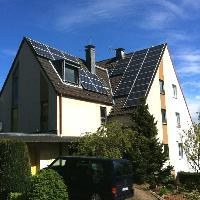(BRUSSELS) – EU states confirmed Wednesday a political agreement on the revised directive on the energy performance of buildings, to improve energy efficiency in buildings and encourage building renovation.
Decarbonising the existing, highly inefficient European building stock is one of its long term goals. It promotes cost-effective renovation works, introduces a smartness indicator for buildings, simplifies the inspections of heating and air condition systems and also promotes electro-mobility by creating parking spaces for electric vehicles.
Buildings account for 40% of the total energy consumption in Europe. By improving the existing rules, taking advantage of recent technological developments and encouraging further energy efficiency, the EU makes a major step towards fulfilling its 2020 and 2030 energy efficiency targets.
The Bulgarian EU Presidency hailed the agreement as “a major milestone for improving the energy efficiency of our citizens’ homes”. “Boosting the energy efficiency of buildings is one of the most effective ways of improving EU citizens’ quality of life, contributing to the achievement of a low-carbon economy, impacting economic growth, job creation and investments,” said Temenuzhka Petkova, Bulgaria’s Minister for Energy.
The review of the energy performance of buildings directive amends Directive 2010/31/EU and it complements measures under the energy efficiency directive as well as EU legislation on energy efficiency of products. It is part of the Clean Energy package presented by the Commission on 30 November 2016.
The Council agreed on a negotiating position on the revised energy performance of buildings directive in June 2017. Negotiations with the European Parliament followed. Today’s decision confirms the provisional agreement reached on 19 December 2017 between the Estonian Presidency and European Parliament representatives.
After formal approval of the regulation by the Council and the Parliament, the directive will be published in the Official Journal of the EU, and it will enter into force twenty days later. The transposition period for this legislation is 20 months.
Commission proposal (background information)
Current directive 2010/31/EU in force on the energy performance of buildings


